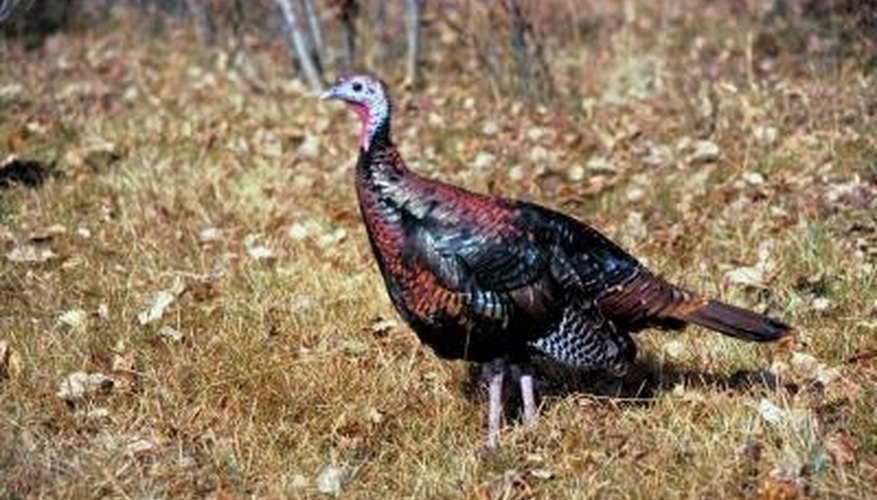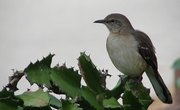
Unlike many animals, wild turkeys do not feed at night. Instead, they sleep in places called roosts, which generally are trees. The birds fly to them around dusk and spend the evening in them before flying down to the ground in the morning to eat. Turkey hunters who know the roosting habits of the bird can use the knowledge to their advantage.
Trees
Wild turkeys do not roost in just any tree. Instead, they choose trees that have some common characteristics. The trees generally will not be far from a water source and a food source, like an agricultural field. They also prefer big trees with an abundance of horizontal branches that they can rest on. Some of the most common trees for roosting are cottonwoods, oaks and sycamores.
Signs
One of the best ways to locate the trees turkeys are roosting in is to take a walk through the woods. Look for wing or tail feathers, which may fall to the ground as the birds fly into the trees. Turkeys are not particularly graceful, so they often hit branches and other objects as they get into and out of trees. Another good sign is piles of droppings at the base of a tree. Making an owl or coyote call at dawn or dusk is also a good way to locate roost trees. Often as not--especially during the breeding season--a male turkey will gobble at the sound, revealing his location.
Anatomy
Nature gives turkeys the tools they need to be able to sleep in trees at night without falling out. When the birds fly into a tree and are ready to sleep, they squat down a little bit, which causes their toes to wrap around the branch on which they are roosting. Once that occurs, the birds won't fall out of the tree, or be pushed by something like the wind.
Open Country
While the turkeys roost in trees, they do not use trees in dense forests. Given that they are large birds--they can weigh 20 lbs. or more--they would have trouble flying into trees in dense stands. And when they fly down in the morning, they prefer to simply pitch down into open land. As a result, large trees near clear-cut areas can be especially good for finding roosting turkeys.
References
Writer Bio
Larry Anderson has been a freelance writer since 2000. He has covered a wide variety of topics, from golf and baseball to hunting and fishing. His work has appeared in numerous print and online publications, including "Fargo Forum" newspaper. Anderson holds a Bachelor of Arts in print journalism from Concordia College.



